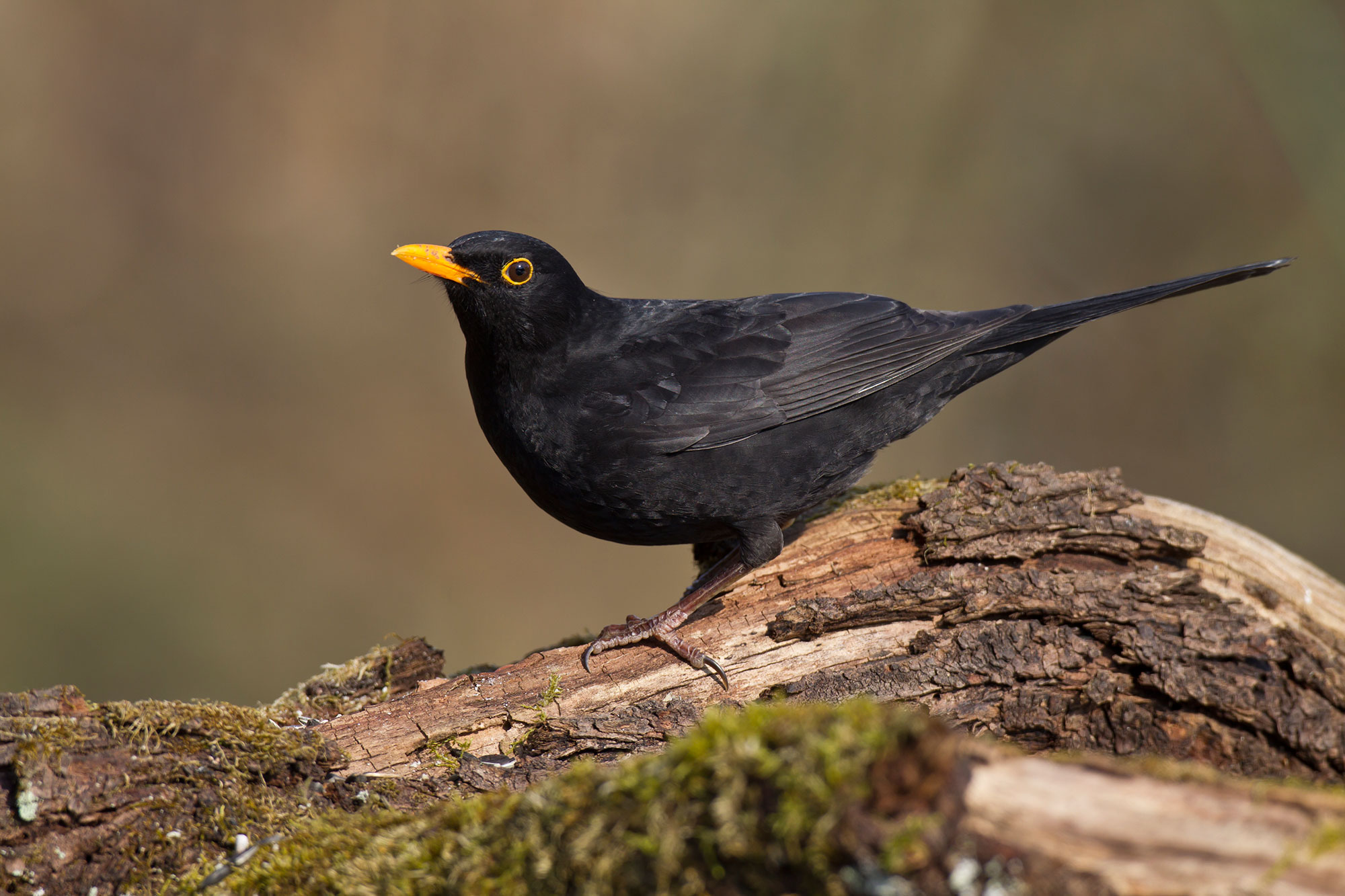The Blackbird (Turdus merula) in the case of a commoner and more appreciated bird species as Amsel. In particular males have a shiny black plumage and they sing beautifully.
A Versatile Forager
Blackbirds’ opportunistic feeding definitely targets us humans in a big way. They feed mainly on insects, worms and other invertebrates taken from lawns, gardens or road edges during the breeding season. Their diet now includes autumn fruits and berries of holly, ivy and rowan trees. This dietary flexibility enables them to live in a diverse range of habitats, from urban parks to rural woodlands.
A Melodic Singer
Everyone knows that the Blackbird is recognised by its melodic song — a tune we are more likely to hear during the summer breeding period. The male song, which contains a variety of whistles, trills and fluty notes running together in such complex ways as to be nearly incomprehensible. Males sing a melodious song to attract female partners, but this also serves as territorial declaration warning other males not to come closer.
A Common Garden Visitor
In the garden, blackbirds can be seen searching for insects and worms. It is also a beneficial ally to gardeners, as it helps keep slug and snail populations under control.
Conservation Challenges
The Blackbird is a common bird, but still has conservation needs eg extensive use of pesticides impacts on invertebrates they eat from the grass (also causes mortality to adults and chicks), plus loss of winter food supplies ie fallen fruit under orchards/cultivation. With relentless urbanization and intensive agriculture to blame for the loss of their natural habitats – hedgerows, woodlands etc. Pesticide poisoning: When pesticides are used extensively, it can impact the birds as well as their food sources causing population drops. Window collisions, especially during migration and reproductive season suffer high mortality as a result.
Conservation efforts are in place to protect the Blackbird. Ongoing work included returning bird habitat, reducing pesticide use, and encouraging local practices that benefit birds. We can do this by maintaining different habitats (and creating new ones), cutting down on the use of pesticides and providing places for them to nest.
Knowing and acknowledging the ecological importance of this delightful bird, we can always take some actions to save BlackBird. In this way, we may not lose the beautiful and wondrous creature to our future generations.
